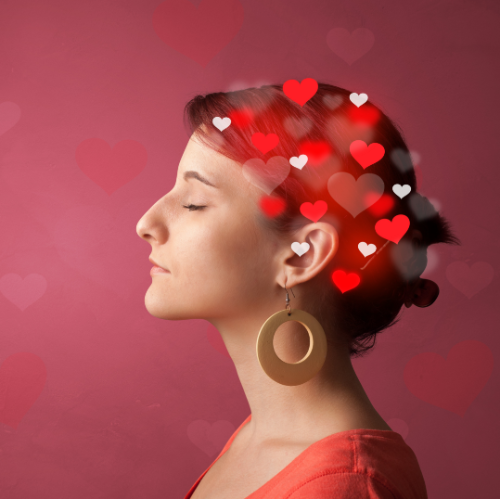Love is blind, the saying goes, and thanks to a world-first Australian study, we are now a step closer to understanding why.

Image Credit: University of South Australia
It is well known that romantic love changes the brain, releasing the so-called love hormone oxytocin, responsible for the euphoria we feel when falling in love.
Now, researchers from the ANU, University of Canberra and University of South Australia have measured how a part of the brain is responsible for putting our loved one on a pedestal in that first flush of romance.
In the world’s first study investigating the link between the human brain’s behavioral activation system (BAS) and romantic love, researchers surveyed 1556 young adults who identified as being “in love”.
The survey questions focused on the emotional reaction to their partner, their behavior around them, and the focus they placed on their loved one above all else.
It turns out that when we are in love, our brain reacts differently. It makes the object of our affections the center of our lives.
ANU lead researcher and PhD student Adam Bode says the study – recently published in the journal Behavioral Sciences – sheds light on the mechanisms that cause romantic love.
We actually know very little about the evolution of romantic love,” Bode says. As a result, every finding that tells us about romantic love’s evolution is an important piece of the puzzle that’s just been started. It is thought that romantic love first emerged some five million years ago after we split from our ancestors, the great apes. We know the ancient Greeks philosophized about it a lot, recognizing it both as an amazing as well as traumatic experience. The oldest poem ever to be recovered was in fact a love poem dated to around 2000 BC.”
Adam Bode, Lead Researcher and PhD Student, ANU
University of Canberra academic and UniSA Adjunct Associate Professor, Dr Phil Kavanagh, says the study shows that romantic love is linked to changes in behavior as well as emotion.
“We know the role that oxytocin plays in romantic love, because we get waves of it circulating throughout our nervous system and blood stream when we interact with loved ones,” Dr Kavanagh says.
“The way that loved ones take on special importance, however, is due to oxytocin combining with dopamine, a chemical that our brain releases during romantic love. Essentially, love activates pathways in the brain associated with positive feelings.”
The next stage of the research involves investigating the differences between men and women in their approach to love, and a worldwide survey identifying four different types of romantic lovers.
Source:
Journal reference:
Bode, A., & Kavanagh, P. S. (2023). Romantic Love and Behavioral Activation System Sensitivity to a Loved One. Behavioral Sciences. doi.org/10.3390/bs13110921.